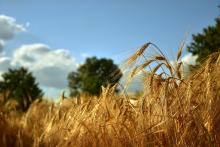A targeted analysis of the impact of insecticide withdrawals in Scotland, in the context of alternative control options

Insecticides are commonly used in Scottish agricultural, horticultural, forestry production, and for amenity and natural environment management purposes. Over the last 10 years, approximately 50% of UK insecticide active substances have been withdrawn due to increasing concern over human health and environmental impacts. Some of these losses will be mitigated by using alternatives but their practicality and cost under Scottish conditions is unknown. This project analysed current crop production patterns and insecticide use in combination with how likely different insecticides are to be withdrawn and provided stakeholder views on the impacts of any such losses on their industry, including other control methods that may be adopted.
The analysis revealed that a high proportion of insecticide actives used in Scotland in 2019/20 are estimated to be at high or medium risk of withdrawal. An immediate loss of key insecticides is likely to have a very damaging impact on many Scottish farmers, growers and the supply chains that they serve. Allowing sufficient notice period and investment into developing varieties and IPM practices that work in the Scottish climate is recommended to mitigate some of those risks. A gradual, phased approach could help to protect employment in rural sectors and the wider Scottish economy. In addition, use of voluntary stewardship schemes can demonstrate the willingness of farmers, growers and foresters to work to reduce insecticide dependence where possible.
Image by Peggychoucair from Pixabay
